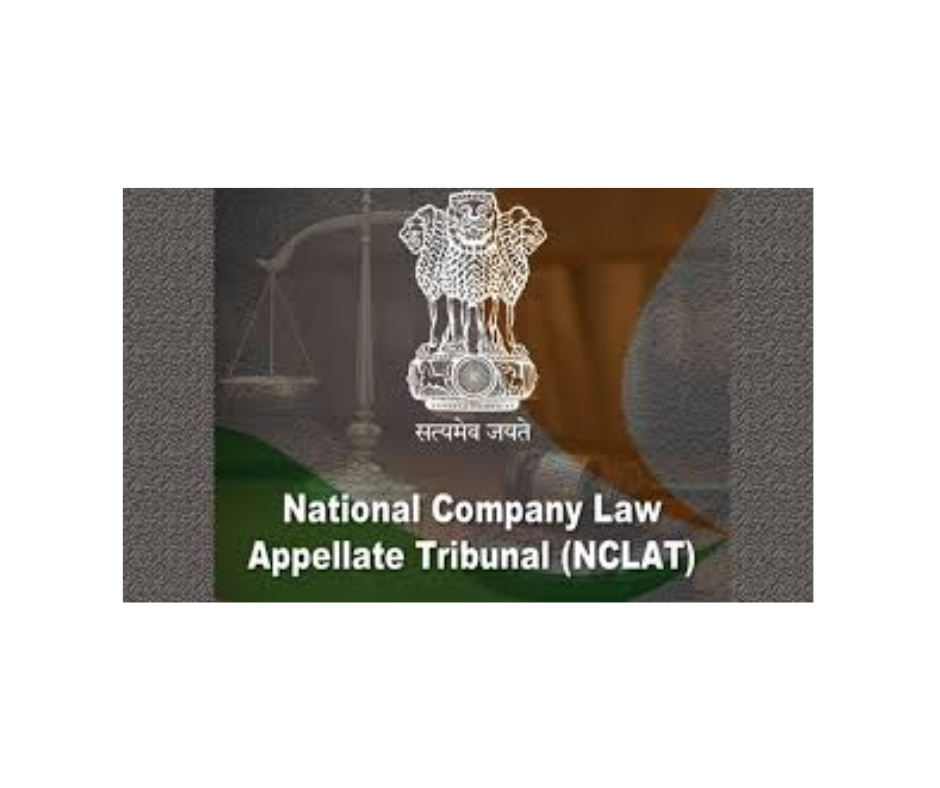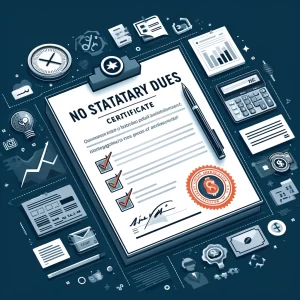

Introduction
A No Statutory Dues Certificate (NSDC) is an official document issued by a regulatory authority confirming that an entity has no outstanding statutory dues, such as taxes, levies, or government fees. This certificate is often required in business transactions, mergers, property deals, and compliance checks to verify financial and regulatory credibility. Understanding its significance, benefits, limitations, and application can help businesses and individuals ensure smooth financial and legal operations.
Definition of No Statutory Dues Certificate
A No Statutory Dues Certificate is an official certification stating that an individual, company, or organization has cleared all required statutory payments, including taxes, labor dues, and other government-imposed charges. It serves as proof of compliance and financial responsibility.
Application of No Statutory Dues Certificate
A NSDC is required in various situations, including:
- Business Acquisitions and Mergers – Ensures that the selling entity has no outstanding government dues.
- Loan and Credit Approvals – Banks and financial institutions may require NSDC for approving large loans.
- Government Tenders and Contracts – Helps businesses participate in government projects by proving compliance.
- Company Closure or Liquidation – Required when winding up a company to confirm all dues are settled.
- Property Transactions – Used in real estate deals to verify that the seller has no pending statutory liabilities.
- Regulatory Compliance Checks – Auditors and government agencies may request NSDC for financial verification.
Benefits of No Statutory Dues Certificate
- Legal Compliance – Ensures that an entity is following tax and financial regulations.
- Financial Credibility – Strengthens trust in business transactions and partnerships.
- Avoids Penalties – Helps prevent fines, legal actions, or regulatory scrutiny.
- Streamlined Transactions – Speeds up business deals, mergers, and loan approvals.
- Enhanced Reputation – Demonstrates a company’s commitment to financial responsibility.
Usage of No Statutory Dues Certificate
- Corporate Transactions – Used in mergers, acquisitions, and company takeovers.
- Financial Institutions – Required for large credit approvals and financial assessments.
- Government Authorities – Need for participating in public tenders and contracts.
- Tax Compliance – Used to verify tax settlements before business closures.
- Legal Proceedings – Acts as proof of financial integrity in court cases and disputes.
Limitations of No Statutory Dues Certificate
- Limited Validity – May need periodic renewal as new dues may arise.
- Approval Delays – Issuance may take time due to verification processes.
- Jurisdiction Restrictions – Different authorities may require separate certifications.
- Not a Guarantee of Future Compliance – Only confirms dues are clear at the time of issuance.
- Documentation Requirements – Requires thorough financial records for application processing.
Comparative Table: No Statutory Dues Certificate vs. Tax Clearance Certificate
| Feature | No Statutory Dues Certificate (NSDC) | Tax Clearance Certificate (TCC) |
|---|---|---|
| Purpose | Confirms no outstanding statutory dues | Confirms all taxes have been paid |
| Issued By | Regulatory authorities | Tax departments |
| Scope | Covers all statutory payments, not just taxes | Limited to tax compliance |
| Requirement | Required for business transactions, tenders, and financial approvals | Needed for tax-related verifications and business closures |
| Validity | Subject to review and renewal | Usually valid for a specific period |
Conclusion
A No Statutory Dues Certificate is an essential document for businesses and individuals to demonstrate financial and regulatory compliance. It plays a crucial role in corporate transactions, financial approvals, and legal proceedings. While it offers numerous benefits such as legal security and enhanced credibility, it also comes with limitations like limited validity and processing delays. Understanding when and how to obtain this certificate can help businesses operate smoothly and maintain financial transparency.
FAQs
- What is a No SDC?
- A certificate that confirms an entity has no outstanding statutory payments.
- Who issues the NSDC?
- It is issued by regulatory authorities such as tax departments, labor boards, or financial agencies.
- How long is the certificate valid?
- It depends on the issuing authority but usually requires periodic renewal.
- Can a business operate without an NSDC?
- While not always mandatory, it is often require for major financial and business transactions.
- Is NSDC the same as a Tax Clearance Certificate?
- No, a Tax Clearance Certificate only confirms tax compliance, while NSDC covers all statutory dues.
- What documents are needed to apply for an NSDC?
- Financial statements, tax payment proofs, company registration details, and compliance reports.
- How long does it take to obtain an NSDC?
- Processing times vary depending on the jurisdiction and completeness of documentation.
- Can an NSDC be revoked?
- Yes, if unpaid dues are later discover or if the entity fails future compliance checks.
- Is NSDC required for individuals or only businesses?
- Primarily for businesses, but individuals in legal or financial matters may also need it.
- How can I apply for an NSDC?
- Submit an application with the require documents to the appropriate regulatory authority.
Related Articles
No statutory dues certificate by Chartered Accountant?
How to write no dues Certificate?
No statutory dues certificate format?
